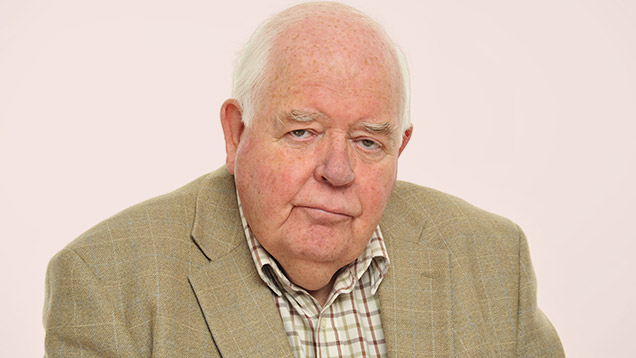Opinion: Market forces are too blunt and unsophisticated
 David Richardson
David Richardson NFU president Meurig Raymond has pleaded with Secretary of State for Defra, Liz Truss, to ensure this year’s direct payments to farmers are on time.
“As we stand today”, he said, opening the recent NFU conference, “direct payments are vital to many farmers.”
They are, he said, “a lifeline against volatility” because “the market isn’t working”.
See also: Have your say on this column on our forum
He had previously said “the NFU’s position is that we don’t want to be dependent on direct payments. We’d rather receive our income from the marketplace”.
But, he admitted that more than half of the average farm’s income came from single farm payments.
Elsewhere at the conference, it was suggested that average arable farm income without direct payments would be a loss of £47/ha, which is clearly unsustainable.
Liz Truss went on to say “volatility is not a one-off. It’s going to be with us for a long time”.
In other words, agriculture will continue to suffer from lack of stability and insufficient profit to invest in new technology that is so urgently needed to deliver another conference theme of reversing the UK’s fall in food self-sufficiency.
In the 1980s, British farmers produced more than 80% of what the country consumed; today we only manage 60% and if trends continue it will be less than 50% in a few years.
Both Meurig Raymond and Liz Truss implied their objectives were for farming to be more productive; more profitable and be recognised as one of the most important industries in the country. But when measures that help maintain stability and farm incomes are removed, it contradicts those agreed objectives.
Import protection has already gone; quotas on hops and potatoes went years ago and disrupted UK production, sucking in imports; milk quotas and sugar beet quotas are to disappear within the next two years, and so on.
Who knows what chaos will ensue with those two commodities? Such measures have already destroyed – and will continue to destroy – huge chunks of our industry.
“Someone once said to carry on doing the same thing and expect different outcomes is the definition of madness.”
David Richardson
How is this consistent with declared objectives? Someone once said to carry on doing the same thing and expect different outcomes is the definition of madness.
So, if we really do want to increase rather than see a decrease in our self-sufficiency, isn’t it time to consider different policies?
When I put that to Liz Truss at a press conference, she suggested that some UK farmers she had visited were doing OK. She listed some in her Norfolk constituency and elsewhere who were thriving despite volatility.
But she didn’t seem to appreciate that those examples were, in the main, unrepresentative niches and that the biggest problems are with staple commodities such as grain and milk.
Given that she will probably not be at Defra after 7 May, it was unrealistic to expect her to agree that new policies are necessary, especially as the market forces doctrine is politically correct and has been espoused by the Treasury for so long.
Nor would she want to admit that, were the much-heralded referendum on whether we stay in or get out of the EU to go against continued membership, we would need new farming policies. Further, I believe, that in or out in future, more policy decisions will be made nationally than in Brussels.
So, my challenge is to the NFU to come up with proposals better and more sophisticated than the blunt instrument of market forces to discuss with a new UK government after the election.
It’s what happened prior to the 1947 Agriculture Act and there followed many years of growth and increasing prosperity.
David Richardson farms about 400ha (1,000 acres) of arable land near Norwich in Norfolk in partnership with his wife Lorna and his son Rob

